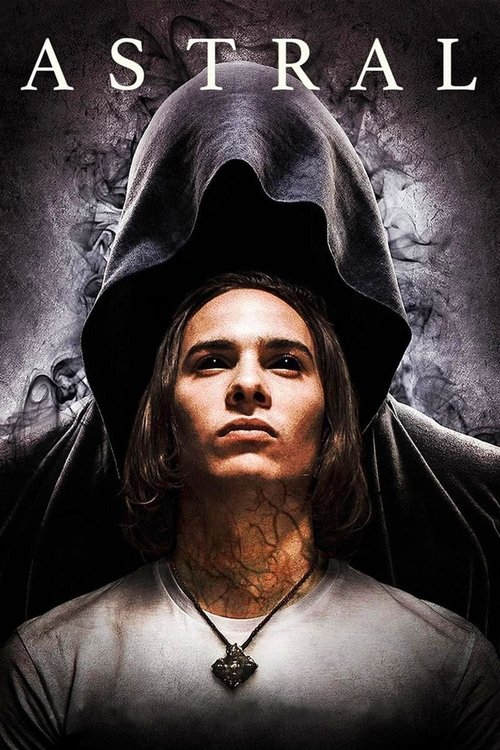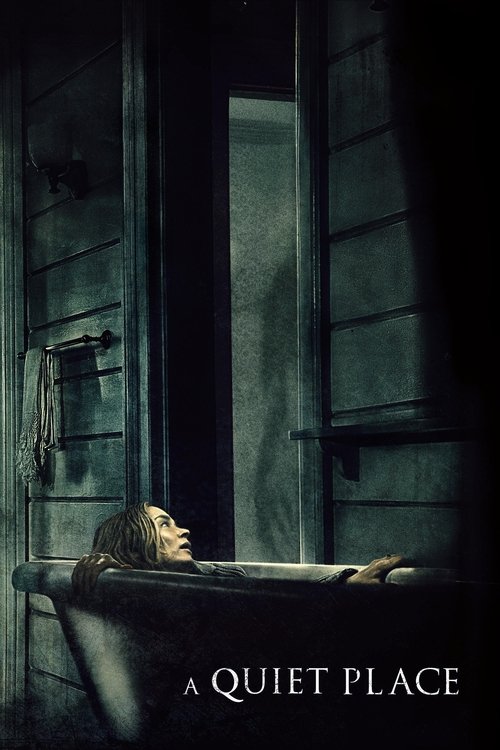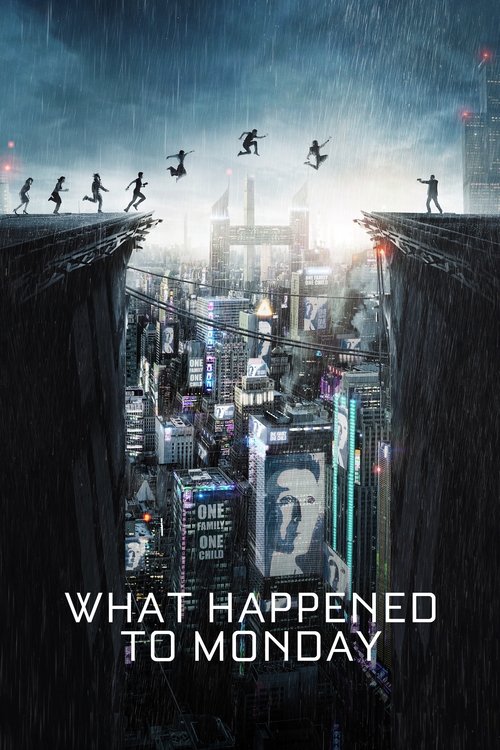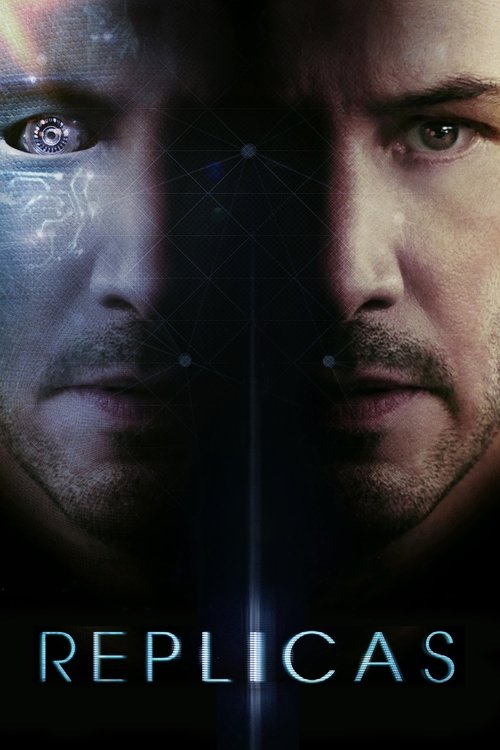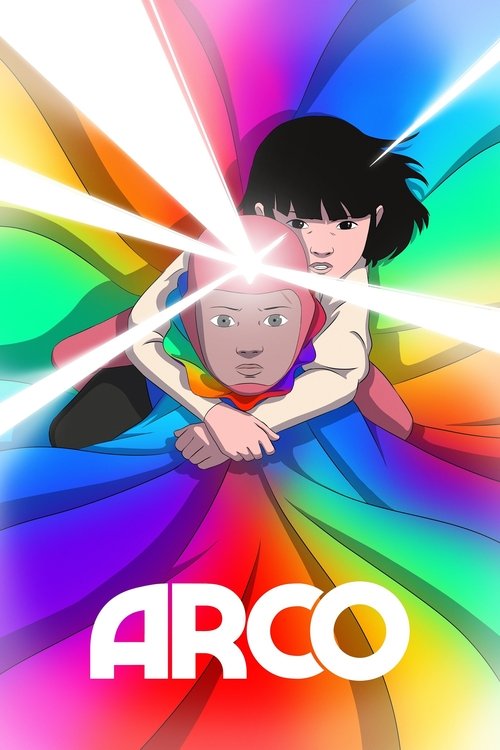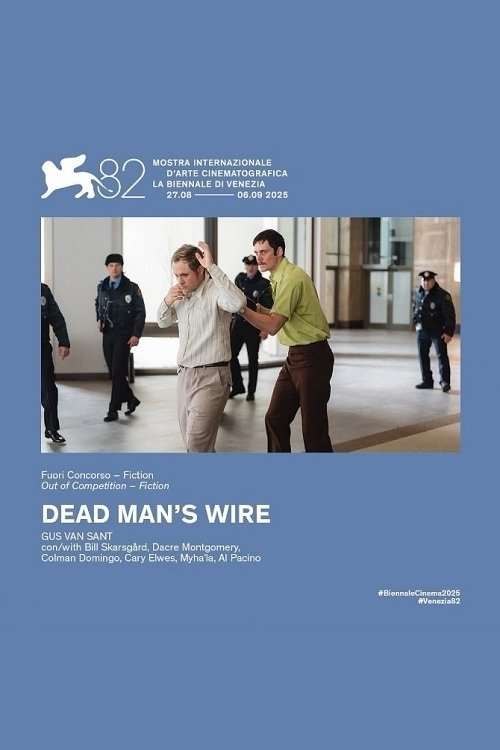
Ask Your Own Question
What is the plot?
The film Astral (2018) opens in a bleak psychiatric ward, where Claire (Catherine Steadman) sits across from Dr. James Lefler (Mark Aiken). The sterile room hums with cold fluorescent light, casting harsh shadows on Claire's pale, haunted face. Dr. Lefler speaks gently but firmly, attempting to reassure her. "You're making progress, Claire. You're safe here." But Claire's eyes betray a deep turmoil, a silent scream behind her fragile composure. Her young son Alex is glimpsed briefly, a small, innocent figure tethered to this dark chapter of their lives.
The scene cuts sharply to a family home, warm yet suffused with an eerie stillness. Claire and her husband Joel (Darwin Shaw) are with young Alex, sharing moments that feel deceptively normal. Yet beneath the surface, tension coils like a spring. The film never shows Claire's suicide directly, but the implication is unmistakable: the mother's death is a shattering event that fractures the family. Joel and Alex are left to navigate the aftermath, with Alex shielded from the truth for years, believing his mother's death was accidental.
Years later, the narrative shifts to a university lecture hall, where Alex (Frank Dillane), now a brooding metaphysics student, sits among his peers. Professor Powell (Trevor White) lectures on the nature of consciousness and the tantalizing possibility of astral projection--deliberate out-of-body experiences that allow the spirit to traverse unseen dimensions. Alex listens intently, his detached demeanor melting into fascination as he learns that astral projection might offer a way to reconnect with his lost mother.
Back at the student housing--a cramped flat shared with friends including Vanessa (Vanessa Grasse), Damson (Damson Idris), Ned (Ned Porteous), and Jennifer (Jennifer Brooke)--Alex begins to obsessively research astral projection. His friends watch with a mix of skepticism and concern. "Had a go at that astral projection thing," Alex admits one evening, "Useless." But his determination only deepens.
Alex's experiments begin with the pendulum--a simple object suspended from a string--and video recordings, tools he uses to capture proof of his astral travels. One night, as the camera rolls, the pendulum swings erratically, and Alex's body lies still, eyes closed. Suddenly, his consciousness seems to detach, and he floats beyond his physical form, entering the astral plane. The film visually contrasts the dim, shadowy dorm room with a surreal, misty dimension where Alex's spirit drifts free.
But the astral realm is no sanctuary. Instead of finding his mother's spirit, Alex encounters shadow spirits--dark, amorphous entities with malevolent intent. These shadow people lurk in the corners of his vision, their presence growing increasingly oppressive. They whisper threats and hunger for entry into the physical world, seeking to possess living bodies to cross over. The tension escalates as Alex's friends begin to witness these shadowy figures themselves, their skepticism replaced by fear. Vanessa, once flirtatious and dismissive, now recoils from the creeping darkness invading their flat.
Alex's obsession isolates him further. He discovers that his mother's death was not accidental but a suicide, a revelation that shatters his understanding and deepens his grief. More disturbingly, he learns that his family has a dark history of supernatural contact--Claire herself was besieged by these shadow spirits, suggesting a generational curse or predisposition to these malevolent forces. This knowledge weighs heavily on Alex, who realizes that his attempts to reach his mother have inadvertently opened a dangerous gateway.
The shadow spirits grow bolder, their influence extending beyond mere apparitions. Objects move inexplicably, lights flicker, and the boundary between the astral and physical worlds becomes perilously thin. The malevolent entities begin to manifest physically, threatening the safety of Alex and his friends. Tensions rise within the group as fear and paranoia take hold. Alex's roommate confronts him, desperation in his voice: "You've brought something here, Alex. Something evil." The confrontation underscores the stakes--Alex's astral experiments have unleashed a force that could consume them all.
In the film's climax, the astral and physical realms collide in a harrowing sequence. Alex, now fully aware of the danger, must confront the shadow spirits to sever their hold on the physical world. The film's visuals intensify--dark shapes swirl violently around Alex's astral form, while in the dorm room, his friends struggle against unseen forces. The atmosphere is thick with dread as Alex fights to reclaim control.
The final confrontation is both metaphysical and deeply personal. Alex faces the embodiment of the shadow spirits, a dark, shifting entity that taunts him with echoes of his mother's voice, twisting his grief into a weapon against him. "You can't save her," it hisses. "She's gone." But Alex refuses to surrender. Drawing on his knowledge and willpower, he rejects further astral projection, breaking the connection and banishing the entities back to their dimension.
The film's resolution is bittersweet. Alex survives, but the ordeal leaves scars--emotional and spiritual. His friends, shaken but alive, gather around him in the aftermath. The boundary between life and death remains fragile, a reminder that some doors, once opened, cannot be fully closed. The camera lingers on Alex's haunted expression as he contemplates the cost of his quest for closure. The final moments underscore the film's central theme: the pursuit of answers about the past can come at a terrible price, and evil, once unleashed, never truly dies.
Thus, Astral closes on a note of unresolved tension, the shadow spirits banished but their threat lingering, a chilling testament to the dangers of tampering with the unknown. Alex's journey from grief to confrontation with darkness is a cautionary tale about the limits of human curiosity and the perilous thin line between this world and the next.
What is the ending?
In the ending of "Astral," the protagonist, a young man named Alex, confronts the consequences of his actions as he attempts to communicate with his deceased mother through astral projection. The climax reveals the dangers of his obsession, leading to a tragic outcome that affects his relationships and mental state.
As the film concludes, Alex's journey culminates in a harrowing confrontation with the spirit world, resulting in a devastating loss that leaves him grappling with guilt and sorrow. The film ends on a somber note, emphasizing the emotional toll of his quest for connection and closure.
As the final act of "Astral" unfolds, the tension escalates. Alex, driven by a desperate need to reconnect with his deceased mother, has been practicing astral projection, a technique he believes will allow him to communicate with her spirit. The atmosphere is thick with a sense of foreboding as he prepares for one last projection, determined to find answers and closure.
Scene by scene, the narrative reveals Alex's internal struggle. He sits in his dimly lit room, surrounded by candles and photographs of his mother, the flickering flames casting shadows that dance ominously on the walls. His heart races as he recalls the moments of joy and pain from his childhood, the memories of his mother's laughter now tinged with sorrow. The weight of his grief is palpable, and he feels an overwhelming urge to reach out to her one last time.
As he enters a trance-like state, the visuals shift, and Alex finds himself in a surreal, dreamlike landscape. The colors are muted, and the air is thick with an ethereal mist. He calls out for his mother, his voice echoing in the silence. The scene is haunting, filled with a sense of longing and desperation. Suddenly, he sees her--a figure shrouded in light, her face both familiar and distant. The emotional intensity of the moment is overwhelming, as Alex's heart swells with hope.
However, the encounter takes a dark turn. As he reaches out to her, the environment shifts, and he is pulled into a chaotic realm filled with shadows and whispers. The spirits of the lost swirl around him, their faces twisted in anguish. Alex realizes that he has ventured too far into the astral plane, and the consequences of his actions are beginning to manifest. Panic sets in as he struggles to return to his body, the connection to his mother slipping away.
In a frantic attempt to escape, Alex fights against the dark forces that threaten to consume him. The visuals become increasingly chaotic, with flashes of light and shadow, symbolizing his internal battle. He screams for help, but the only response is the echo of his own voice. The emotional turmoil is evident as he grapples with the realization that his obsession has led him to a place of danger.
Back in the physical world, his friends and family grow increasingly worried about his well-being. They attempt to reach out to him, but Alex is lost in his quest, unable to hear their pleas. The film juxtaposes his internal struggle with the concern of those who care for him, highlighting the isolation that grief can bring.
As the climax reaches its peak, Alex finally manages to break free from the astral realm, but not without a cost. He awakens in his room, gasping for breath, the weight of his experience crashing down on him. The emotional fallout is immediate; he realizes that he has lost something precious in his pursuit of connection. The final scenes depict him grappling with the aftermath of his actions, the guilt and sorrow etched on his face.
In the closing moments, Alex visits his mother's grave, a poignant scene filled with raw emotion. He kneels before the headstone, tears streaming down his face as he whispers apologies and confessions. The camera lingers on his expression, capturing the depth of his pain and the realization that some connections cannot be forced or reclaimed. The film ends with a sense of unresolved grief, leaving Alex to navigate the complexities of loss and acceptance.
The fate of each main character is intertwined with Alex's journey. His mother, though a guiding presence in his memories, remains a figure of loss. His friends, who have been supportive yet worried, are left to witness his struggle from a distance, emphasizing the impact of his obsession on their relationships. Ultimately, Alex is left to confront the emotional scars of his journey, a poignant reminder of the dangers of seeking closure in the face of grief.
Is there a post-credit scene?
In the movie "Astral," there is no post-credit scene. The film concludes without any additional scenes or content after the credits roll. The story wraps up with the main character, a young man named Alex, having gone through a harrowing journey involving astral projection and the consequences of his actions in the spirit world. The ending leaves viewers with a sense of resolution regarding Alex's struggles and the impact of his experiences, but it does not extend into any further narrative or tease future developments.
What motivates the main character, a young man named Alex, to explore the astral plane?
Alex is driven by a deep sense of loss and grief following the death of his mother. His desire to connect with her and understand the nature of life and death propels him into the exploration of the astral plane.
How does Alex's relationship with his father evolve throughout the film?
Initially, Alex's relationship with his father is strained, marked by a lack of communication and understanding. As Alex delves deeper into the astral plane, his experiences lead to moments of confrontation and eventual reconciliation, as they both confront their shared grief.
What role does the character of the psychic play in Alex's journey?
The psychic serves as a guide for Alex, providing him with insights and warnings about the dangers of astral projection. This character embodies the tension between the allure of the astral world and the potential consequences of exploring it.
What are the consequences Alex faces as he continues to astral project?
As Alex becomes more involved in astral projection, he experiences increasingly dangerous encounters with malevolent entities. These experiences lead to physical and emotional repercussions, including a growing sense of fear and disconnection from reality.
How does the film depict the astral plane, and what significance does it hold for Alex?
The astral plane is depicted as a surreal and visually striking realm, filled with both beauty and terror. For Alex, it represents a space of potential connection with his deceased mother, but also a battleground for his inner demons and unresolved issues.
Is this family friendly?
"Astral," produced in 2018, is not considered family-friendly due to its themes and content. Here are some potentially objectionable or upsetting aspects that may affect children or sensitive viewers:
-
Supernatural Elements: The film delves into themes of astral projection and the supernatural, which may be frightening for younger audiences or those sensitive to horror elements.
-
Intense Emotional Scenes: The protagonist experiences significant emotional turmoil, including grief and loss, which may be distressing for viewers.
-
Dark Themes: The narrative explores darker aspects of human experience, including existential dread and the consequences of one's actions, which may be heavy for younger viewers.
-
Violent Imagery: There are scenes that may contain unsettling or violent imagery, which could be disturbing.
-
Psychological Tension: The film builds a sense of psychological tension that may be anxiety-inducing for some viewers.
Overall, the film's mature themes and intense emotional content make it more suitable for an adult audience.

